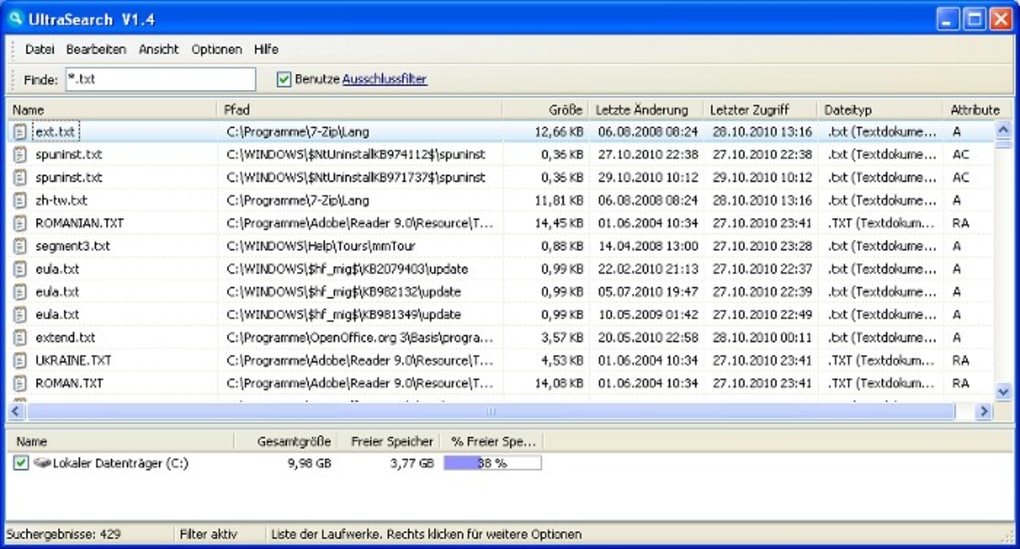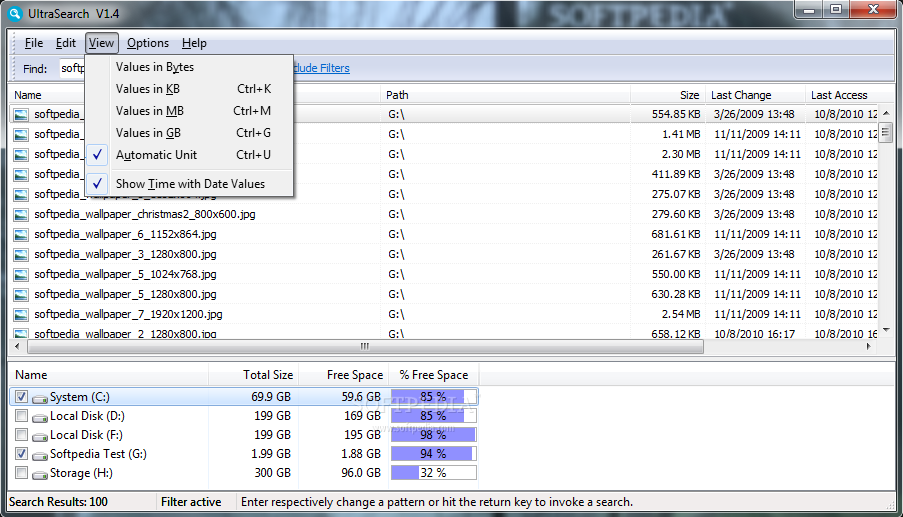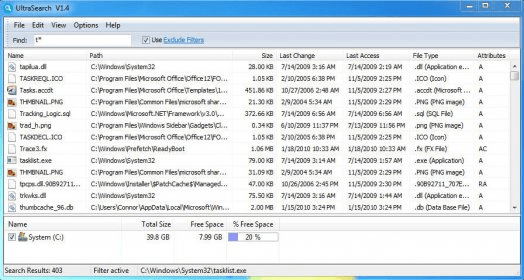
* additional blank in search pattern removed * Fixed 'Cannot focus disabled or invisible window' * Few minor bugfixes and improvements have been incorporated * New scanning mechanism always detects NTFS hardlinks * Speed of sorting the results greatly increased * Redesigned scanning mechanism and new search algorithm for faster searches The search results can also be printed or exported as text, CSV and Excel file. Moreover, the Explorer context menu is available inside UltraSearch.

Additional information like size and last change date will be shown for the listed files. You can enter a file name or a pattern like *.exe and often will see the results already while typing. UltraSearch does not use a previously built index or background process, it achieves its speed by working directly on the Master File Table (MFT) of the NTFS partitions. The free version includes a healthy compliment of features, but for $24.UltraSearch searches files on local NTFS drives and provides the results within just a few seconds.

How to Switch Between Command Prompt or PowerShell on Win+X Menu.

How to Add 'Open PowerShell Window Here' as Administrator Context Menu.How to Customize Fonts, Colors, Window Size and More With Powershell or Command Prompt.The 100 recently used search patterns can be saved and selected from a drop-down list. The search results can be sorted according to different criteria, printed or exported as text, RTF, HTML, CSV, and Excel files.

UltraSearch enables you to exclude folders, files, or file types from searches via an exclude filter. You can set up UltraSearch from the context menu (right-click). Additional information will be shown, including file size, file dates, last changes, last access, etc. If you enter a file name or a pattern like *.exe, you will see the results while still typing, similar to autocomplete. Instead, it works directly with the Master File Table (MFT). This can be handy for those who shut off indexing but still need to search since UltraSearch does not maintain an index. UltraSearch finds files and folders on local NTFS drives providing the results in just a few seconds.


 0 kommentar(er)
0 kommentar(er)
